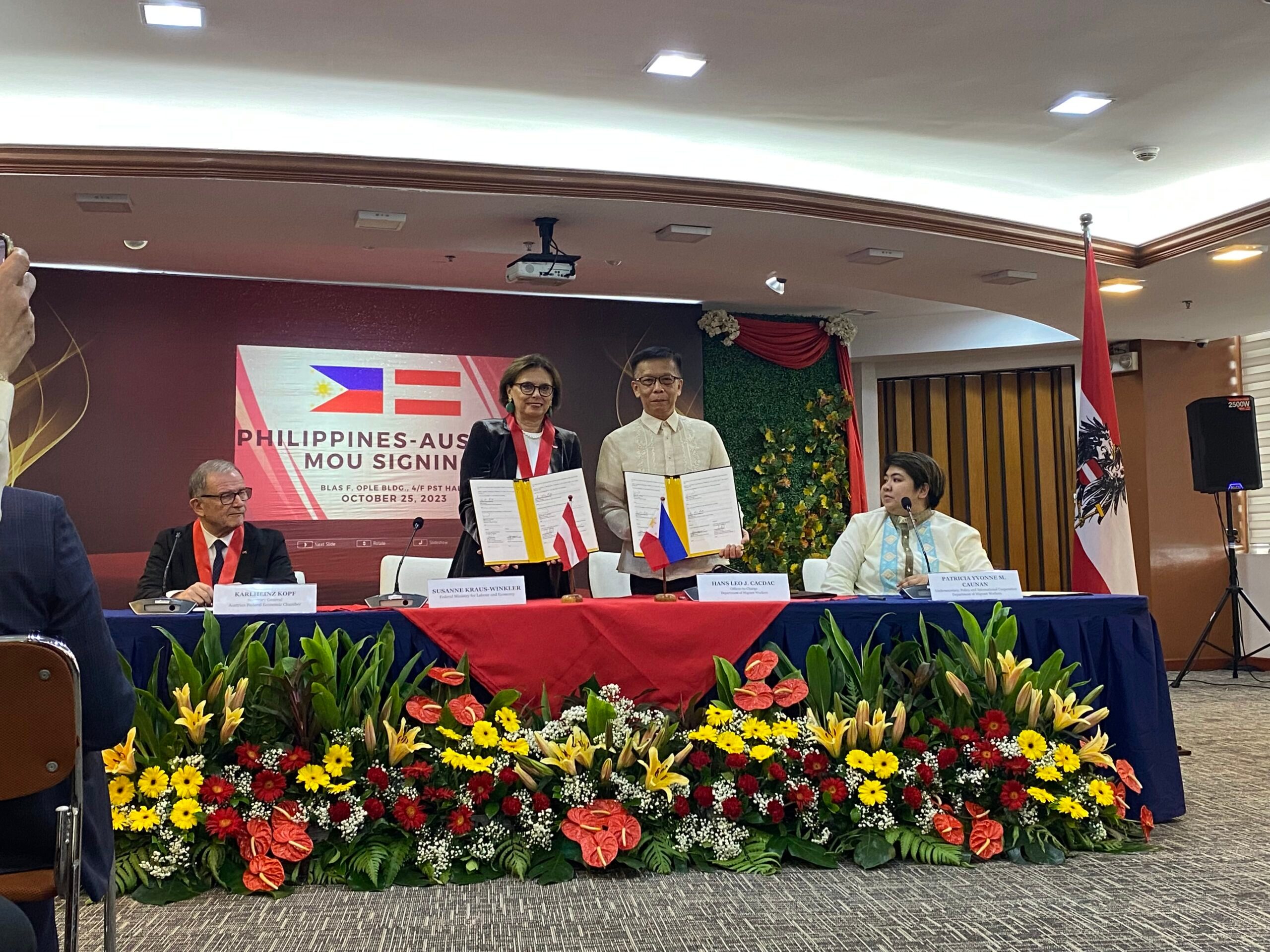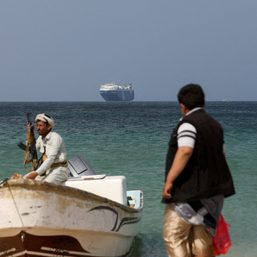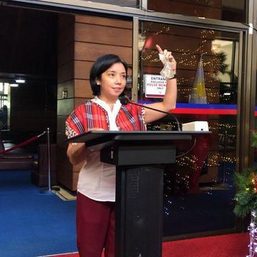SUMMARY
This is AI generated summarization, which may have errors. For context, always refer to the full article.

MANILA, Philippines – The Philippines and Austria on Wednesday, October 25, formalized an agreement that would pave the way for hundreds of skilled Filipinos across various industries to travel and work in the European country every year.
On Wednesday, representatives from the Philippine Department of Migrant Workers and its Austrian counterpart signed a memorandum of understanding governing the recruitment of Filipino workers in Austria. It is the DMW’s second bilateral agreement with the country, following another memorandum signing in July for Filipino healthcare workers’ deployment to Austria.
Austrian State Secretary of Labor and Economy Susanne Kraus-Winkler said that a variety of skills were in demand in the country – from healthcare, services, tourism, hospitality, construction and engineering, and information technology. She said some 500 Filipino professionals were expected to be deployed to the central European country every year moving forward.
Winkler said the Philippines was the first country Austria has entered into a memorandum of understanding with, covering “all areas of future cooperation in the field of recruitment and vocational training.”
“Through this agreement, we aim to facilitate the deployment of Filipino professionals and skilled workers to Austria in a manner that is safe, ethical, sustainable, and mutually beneficial. Our workers, in return, will contribute to addressing labor shortage in Austria and to sharing their expertise and commitment to the economic development of Austria,” said DMW officer-in-charge Hans Cacdac.
The Austrian officials present in the DMW headquarters in Mandaluyong City noted how their country faced a shortage in skilled workers. According to Austrian Federal Economic Chamber secretary general Karlheinz Kopf, up to 80% of Austrian companies are experiencing shortages in skilled workers, translating to around 200,000 in vacancies.
Kopf said that the number of vacancies could double within the next 15 years given demographic trends in Austria.
Skilled workers are lacking even with the country having more employed workers than before the COVID-19 pandemic, Winkler said.
“We think that this is because after the pandemic, there was a little bit of a shift in the way people were thinking about work. It was a bit more about work-life balance. And of course, the industry started to grow tremendously. So we still have more people employed, but we need more than ever before,” said Winkler.
Winkler said that around 20% of Filipino workers already working in Austria are in tourism, and that many of the estimated 500 per year are expected to go into the tourism industry.
She added that Filipinos who run into issues like overwork and improper wage payments will be protected by a chamber for workers. As soon as they are employed, they become part of this chamber, and will be able to approach legal advisers in labor-related disputes.
DMW officer-in-charge Cacdac also announced plans to set up a DMW office or outpost in the Philippine embassy in Vienna. Like in other countries with Philippine labor offices, Filipino workers should also be able to reach out to the Philippine labor attaché when running into issues with their employers.
“I think we have a quite good legal system. The moment you have a problem, you should try to get support from the possibilities offered,” said Winkler.
DMW numbers say there are around 5,824 overseas Filipino workers in Austria. Around 1,220 of them are in the hospitality and food service category, while 749 in the health and social work service sector. – Rappler.com
Add a comment
How does this make you feel?















There are no comments yet. Add your comment to start the conversation.